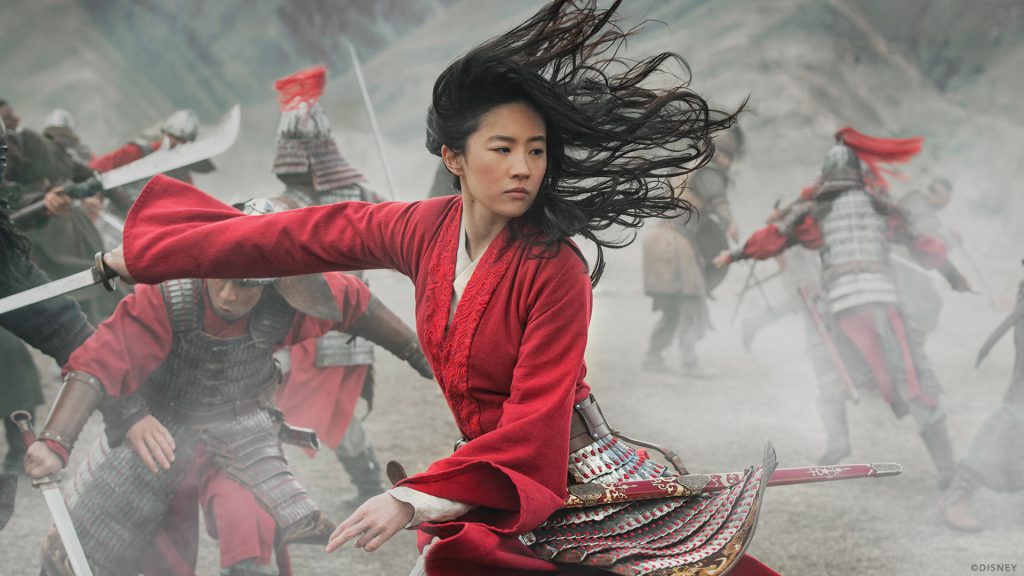Following the release of Disney’s live-action Mulan adaptation on Disney+, there was a new wave of criticism towards the film’s star Liu Yifei for supporting Hong Kong police. She expressed her support last year as Hong Kong protests against police brutality began. Now the film is generating more critique for being filmed in Xinjiang, a Chinese region where Uighur Muslims are detained in mass internment camps.
The new backlash began when social media users noticed that Disney thanked several Xinjiang organizations in the credits for Mulan. Uighur Muslims in the region face severe human rights violations, according to advocates and legal scholars. While the Chinese Communist Party refers to the internment camps as job-training centers meant to fight Islamic extremism, leaked documents and testimonies by detainees describe physical and verbal abuse and indoctrination sessions.
Among the organizations Disney thanked was the Turpan police bureau. Turpan is a city in eastern Xinjiang with a large Uighur population. This police organization and others were placed on a blacklist by the Trump administration last October. This forbids U.S. companies from selling products to them. Turpan also hosts detention camps and includes the first documented case of “transformation through education”, which targets Muslims.
The government crackdown on Uighur Muslims expanded in 2017, and filming of Mulan took place in 2018. In September 2017, Mulan director Niki Caro posted a photo from Uramqi, the capital of Xinjian, during a location scout.
Grant Major, the film’s production designer, recently spoke to Architectural Digest about the production team conducting research in and around Xinjiang.
The New York Times quoted Tahir Imin, a Uighur activist in Washington, who said:
This film was undertaken with the assistance of the Chinese police while at the same time these police were committing crimes against the Uighur people in Turpan. Every big company in America needs to think about whether their business is helping the Chinese government oppress the Uighur people.
Supporters of the Hong Kong protests recently dubbed pro-democracy activist Agnes Chow the “real Mulan” following her recent arrest.
Last week, protests began in Inner Mongolia following a new policy that reduces the teaching of the Mongolian language. All of these issues relate to broader concerns of China attempting to assimilate minorities. The backlash against Mulan has only drawn further attention to China’s human rights violations and U.S. companies continuing to work with regions such as Xinjiang.
Mulan is due to be released in China on Friday.

